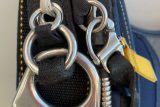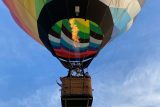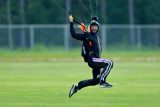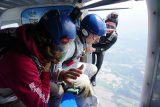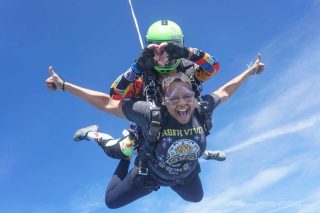Full Breakdown of Skydiving Equipment List
Sport Skydiving
8 months ago
Skydiving Equipment List
Imagine the thrill of freefalling from thousands of feet above the earth, the wind zipping past, and your heart pounding with pure adrenaline – all made possible by sophisticated skydiving gear – and a little courage, of course. Whether you’re curious about the logistics of the sport or looking to dive into buying your own gear, getting familiar with the skydiving equipment list is your first step toward embracing the big, blue sky.
This quick guide will take you through everything you need to know about what equipment is used in skydiving: from its purpose and how it works to how much it costs. Let’s go!
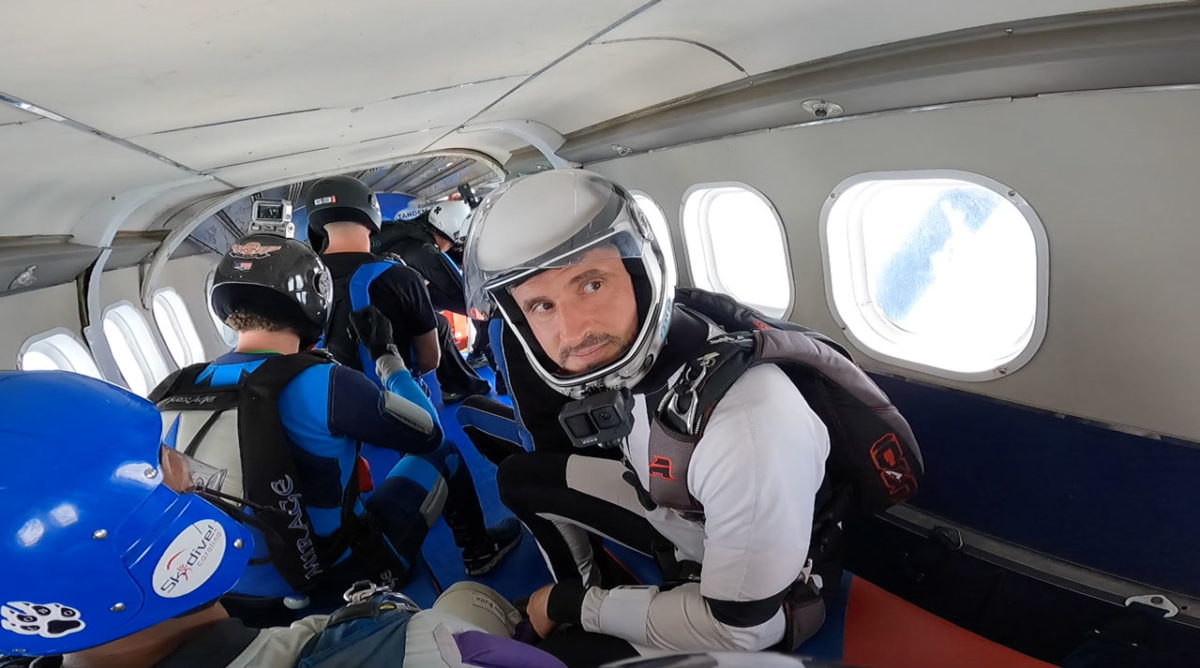
What Gear Do I Need To Skydive?
Aside from closed-toed shoes and appropriate clothing, the skydiving equipment list for beginners who have their license to fly is actually quite concise. Let’s break down the skydiving cost regarding essential gear.
Skydiving Helmet, $100-$700
There are different types of skydiving helmets: open-face and closed-face. Closed-face helmets, also called full-face helmets, have a visor that the skydiver closes prior to leaving the aircraft – they look sort of like a motorcycle helmet. Open-face helmets are exactly as they sound and they require goggles since there is no visor to protect those precious peepers. As an added bonus to the mix: camera helmets! Designed specifically for camera flying videography, these setups generally have a flat top and plenty of room for various camera mounts.
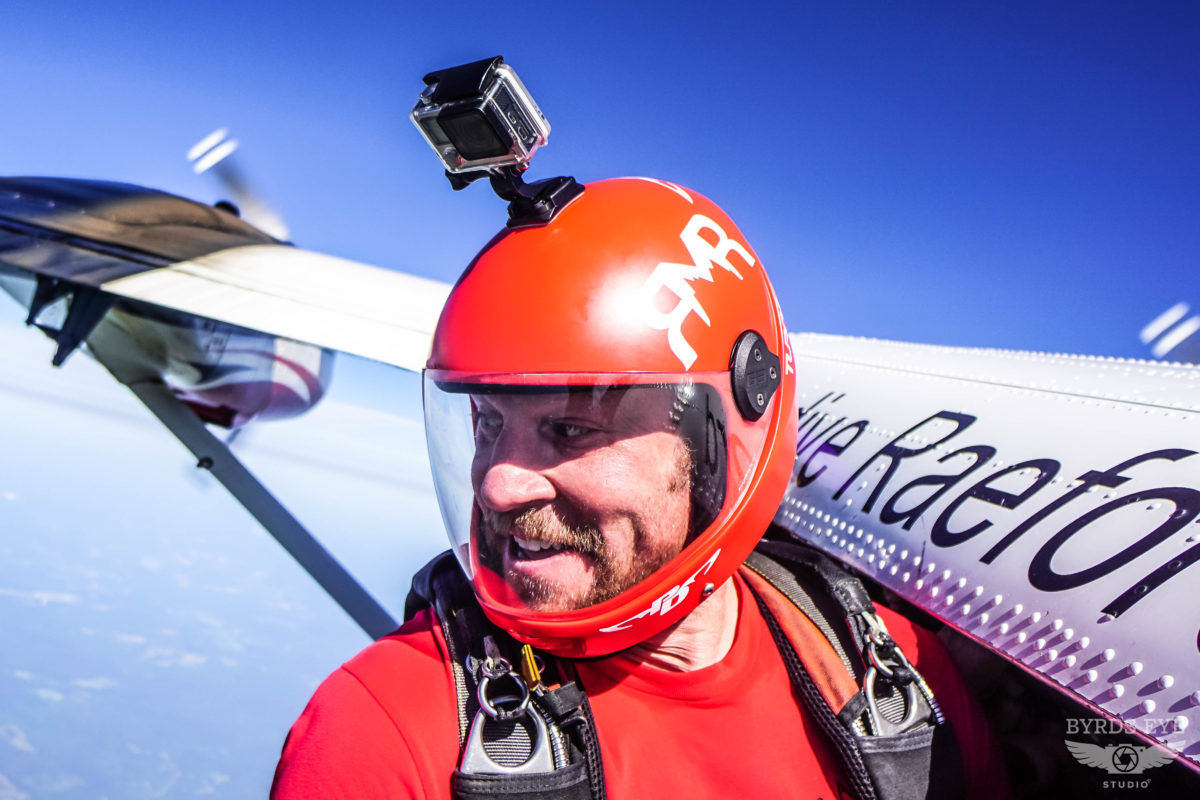
Goggles, $20-$200
The two most important features of skydiving goggles are comfort and functionality. Goggles should fit flush against the face without being overly tight and be comfortably secure under the helmet. Some licensed jumpers opt for tinted goggles, but students are generally required to wear clear ones due to eye contact with instructors being critical.
Altimeter, $100-$400
What does a skydiver use to track how high (or low) they are? Enter: the skydiving altimeter! Altimeters show how high the jumper is from the earth – some can even show the climb rate of the aircraft while ascending.
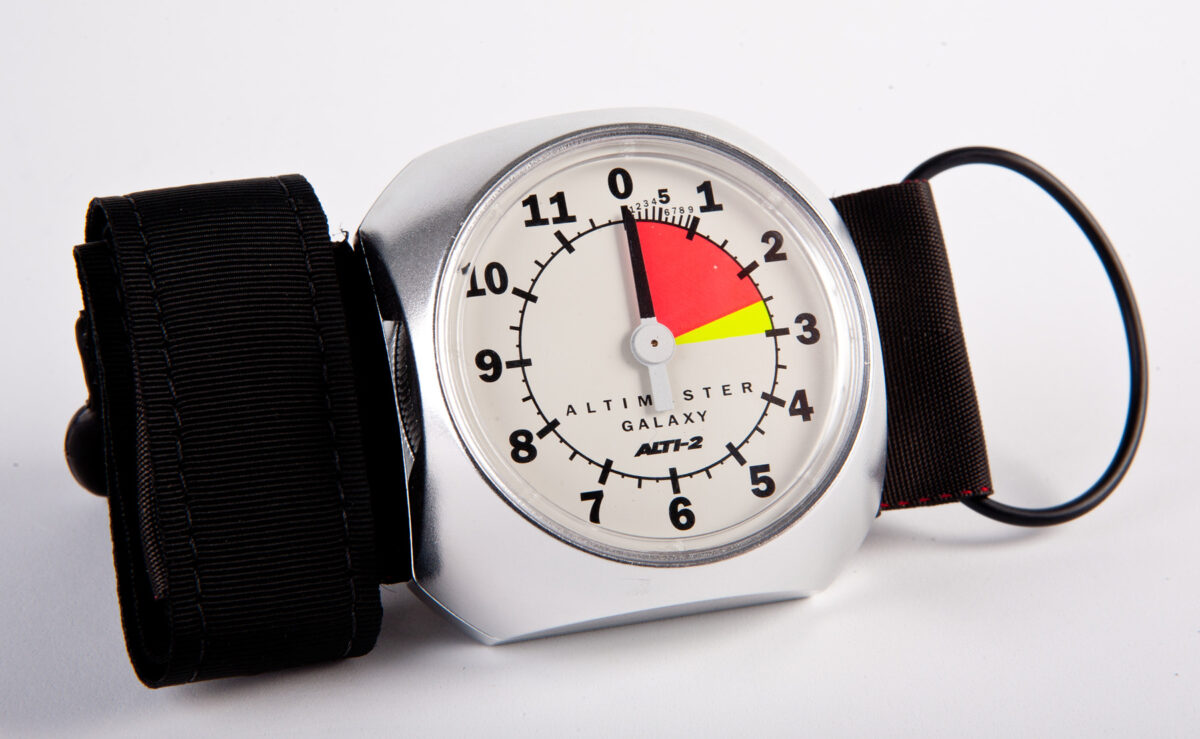
Audible, $200-$400
An audible altimeter, sometimes referred to as a dytter, is a small device that signals how high the skydiver is by beeping in their ear. The altitude at which the audible beeps are determined by the individual skydiver and programmed into the device prior to jumping.
Jumpsuit, $100-$1000
Skydiving jumpsuits are optional for licensed jumpers, while most dropzones require them for jumpers learning how to skydive solo. Jumpsuits vary in functionality; some are designed for relative work (belly flying), while others are tailored toward freeflying or tracking. Suits are commonly bought used, or they can be custom ordered, which is the reason for the large price range.
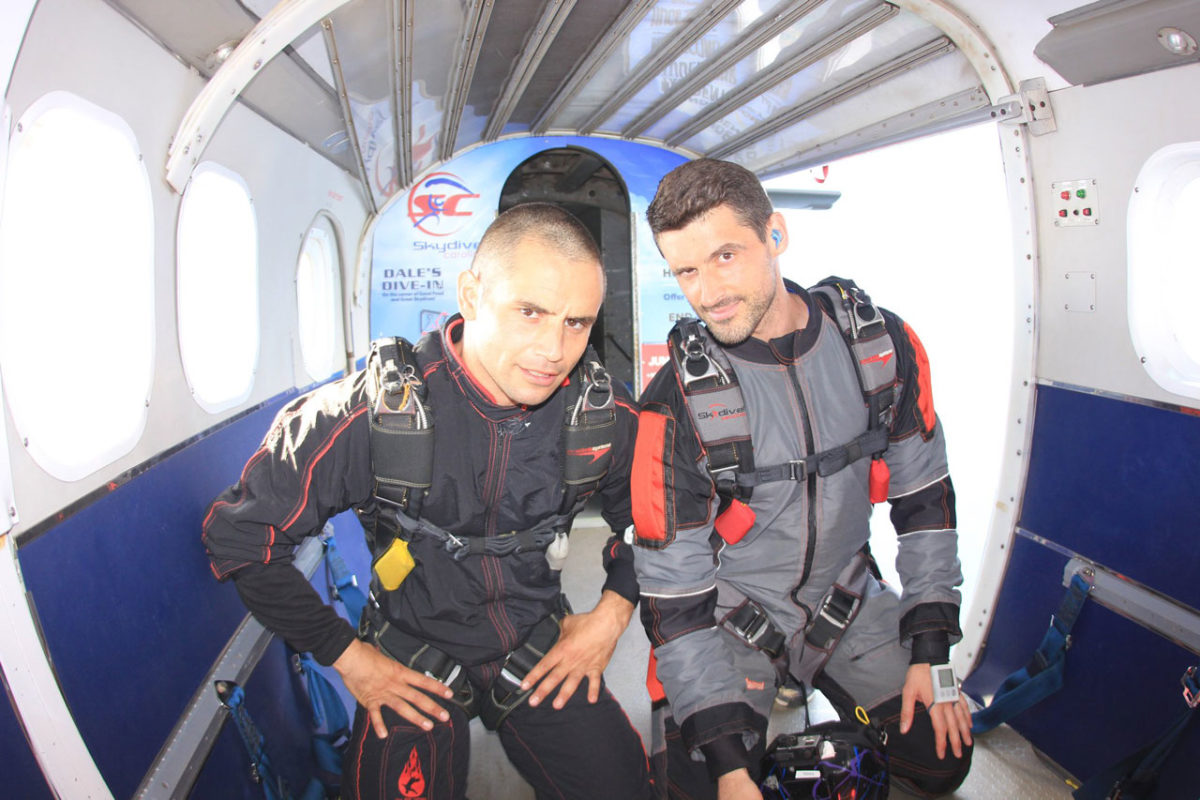
Container, $1000-$5000
The container is the harness and backpack-looking portion of the skydiving setup. The container + the main and reserve canopies = the rig. Make sense? It’s important that containers fit the body of the skydiver appropriately, and it’s common for people to find used containers that fit suitably – woo!
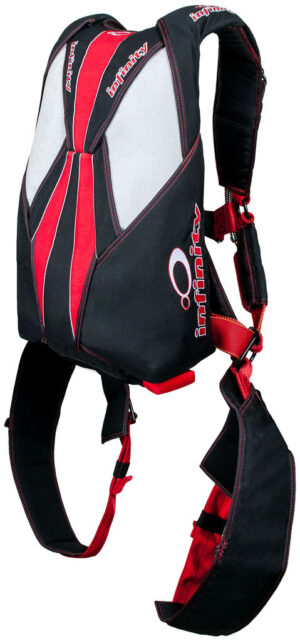
RSL, $100-$300
Reserve Static Lines are routed through the container, connecting the risers of the main canopy to the reserve parachute pin. In the event of a main canopy cutaway, the RSL will act to pull the reserve pin, typically before the skydiver even has time to manually deploy the reserve. RSL’s are on all tandem skydiving containers!
Main Parachute, $1000-$5000
The parachutes skydiving professionals use have significantly evolved over the years. The price of a main canopy varies greatly on what they’re being used for. Is this a student canopy or advanced swooping canopy we’re talking about? The majority of licensed skydivers will spend upwards of $3000 when purchasing a new main canopy.
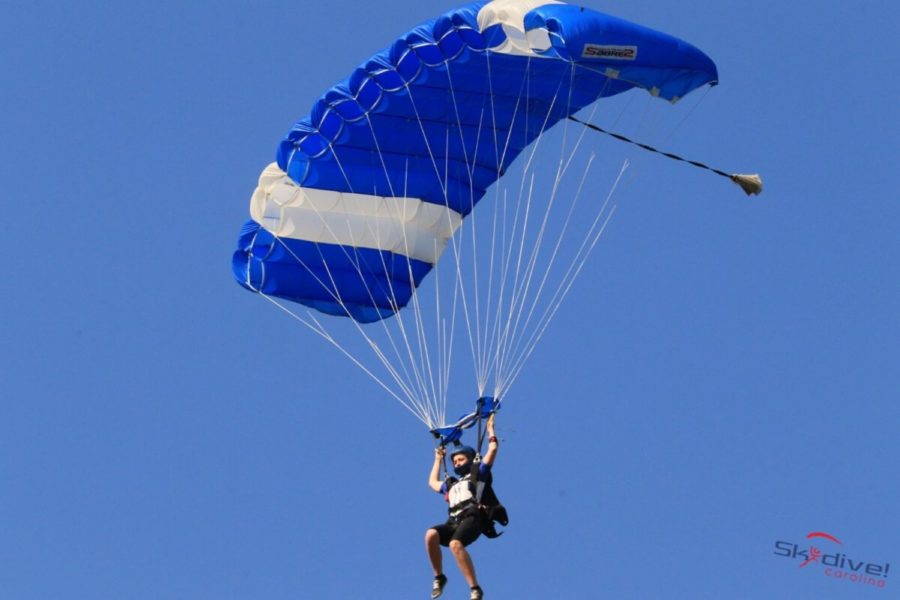
Reserve Parachute, $1000-$3000
Reserve canopies are our “just in case” and are secured inside every modern-day skydiving container! Fun fact: BASE jumping rigs only come with one parachute.
AAD, $1000-$1200
A skydiving AAD – Automatic Activation Device is a requirement in all tandem skydiving rigs and the vast majority of experienced solo jumpers opt to have them. AADs are small computers routed throughout the container. They use air pressure and altitude to determine if the skydiver is falling too fast at too low of an altitude – meaning, the skydiver is still in freefall when they should’ve already deployed their parachute. This would result in an AAD fire, i.e. the AAD would react to automatically deploy the reserve canopy. AADs save lives!

AAD’s are also something people buy pre-loved! After a handful of years or a couple thousand skydives (whichever comes first), AAD’s need to be replaced or serviced by their original manufacturer. This causes AAD’s that are at their ‘half lives’ to cost less, making used AAD’s a budget-friendly option.
So, how much does a full set of skydiving gear cost? It depends! Many skydivers buy all their gear used, while others send it and get everything new – the preference is yours. Similar to entering into any new hobby, the upfront investment cost can freak you out a bit. But, think about it: when you buy everything once, you don’t have to again! That is … until you want the next best thing, hehe!
Curious to see how all this skydiving stuff works in real life (and if it’s really worth investing in)? Come find out for yourself! Jump with us at Skydive Carolina!! Blue skies!
